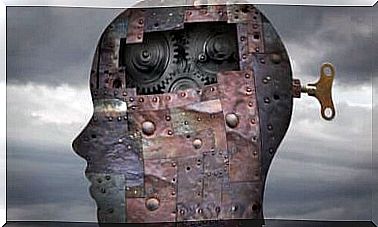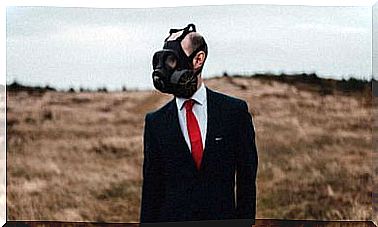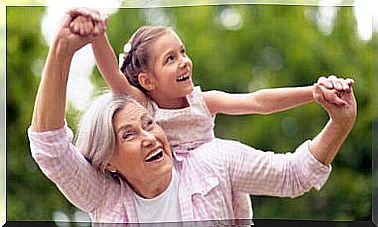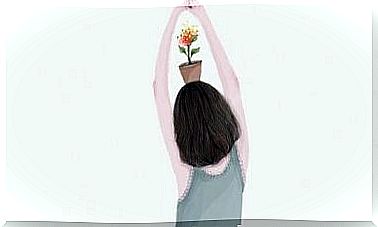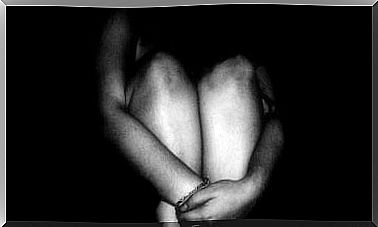When Nothing Is Safe, Learn To Trust Yourself
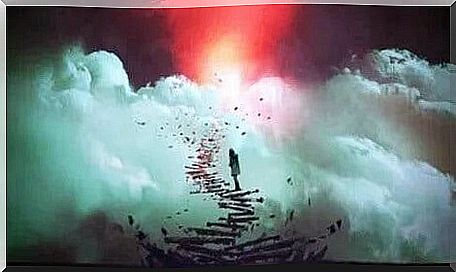
When there is nothing safe around you, when you feel the feeling that the ground is crumbling under your feet, remember: learn to trust yourself. Nothing ties us to life more than the firm confidence that we deserve to feel better, that whatever happens, we can activate efforts and strategies to face what is to come. This is a highly valuable psychological resource.
Furthermore, we could say that this dimension is linked almost directly to our ability to have a more satisfied and happier life. After all, the flip side of self-confidence is fear and, as we well know, nothing is as devastating as facing a day-to-day in which anguish, insecurity and the feeling that we have no control over anything are present.
There is also something undeniable right now: we are going through a crisis at all levels. We see the future with an uneasy mix of worry and uncertainty, we feel that many of the things we thought were right can be completely reshaped. Faced with this scenario, we have only two options: drop into the abyss of vulnerability or respond from a revitalizing energy – trust.
Nothing guarantees that what may happen tomorrow will be good or bad. But if we can trust ourselves, any adversity will become more manageable.

Learn to trust yourself and (almost) anything will be possible
For Carl Rogers, founder of client-centered therapy and one of the leading exponents of humanistic psychology, self-confidence is an essential component of self-esteem. A priority dimension that must be taken care of so that everyone can achieve well-being. Abraham Maslow also included it when he enunciated his theory on the hierarchy of human needs, represented in his now classic pyramid.
Self-confidence was part of the echelon of esteem or recognition. It was that area in which independence, self-esteem, dignity, the fact of feeling competent to achieve something safe in order to reach goals, conquer spaces, love and be loved… According to Maslow, only when we master these dynamics, we will aspire to the summit that is self-actualization.
Self-confidence is almost like that key that allows us to unlock many of the rewards that life gives us that we sometimes don’t get out of indecision, fear, or worse, because we believe we don’t deserve it. Therefore, it is important to consider all the doors that we could cross thanks to this psychological competence.
In a world of chaos, learn to trust yourself
In an ever-changing world, self-confidence will bring remarkable benefits to you:
- Less fear and less anxiety.
- Reduce the voice of that inner critic, the one who has been convincing you for so long that you can’t, don’t know, or don’t deserve it.
- Feel more motivated to work and fight for what you want.
- Develop better coping strategies to deal with difficulties.
- Have a more positive view of yourself.
- Improve the quality of your relationships.

How to build better confidence in yourself?
If you want to change your life, if you want to improve your reality and face difficulties better, do this: learn to trust yourself. However, keep in mind that this task requires daily work. Self-confidence and self-esteem are easily eroded. These aren’t stable dimensions in time, it’s not like carving a figure out of a piece of wood and enjoying that creation for the rest of your life.
These dimensions are often very sensitive. Sometimes, a disappointment, a mistake, and even a harmful affective relationship end up boycotting these psychological forces in which we invest so much time. Therefore, we have to be prepared and promote this mental and emotional self-care. Let’s see what strategies can help you.
- Be clear about your values, your purposes. Know well what is important to you, what you want out of life and what you expect of yourself.
- Assume you are not a perfect person. You have every right to make mistakes, fall, fail, suffer when fate hits you. However, your ultimate obligation is to pull yourself together, get up and learn.
- Be compassionate with yourself, master your inner dialogue by being kind to your own being. Don’t act like your worst enemy, respect yourself.
- Reinterpret your fears. Whenever they convince you that you can’t handle something, ask why. Rephrase them, eliminate them from your mind if they have no meaning or basis.
- Set simple goals you can achieve. You will then feel more solvent, capable, strong, and motivated.
- Don’t let anyone limit your potential or question your capabilities. You deserve to achieve what you want.
In times of crisis, trust yourself
Learn to trust yourself. Awaken that strength so that it works like a parachute when things come crashing down.
Learn to trust yourself on those days when nothing is certain and the horizon threatens a storm. Say yes to putting into practice ingenuity, resilience, the ability to act, the wisdom to know how to deal with fear, how to react to difficulties…
When the world is in chaos, trust that mental haven where everything is calm and trust develops. Because when fate is uncertain, the only thing that’s safe is you. You and your determination to move forward, to help others, to act like that person who always strives for the best.
